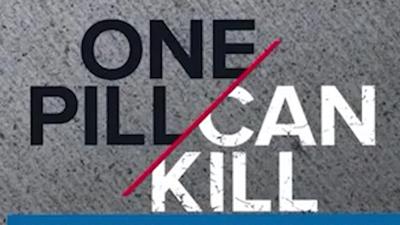LIMA, Ohio (WLIO) – College can lead to personal growth, a career path and help develop essential skills for students. But the experience could also be dangerous — or even deadly — if drugs are added into the mix.
The Detroit Division of the Drug Enforcement Administration is providing a lifesaving message on college campuses in Ohio and Michigan about the dangers of drug abuse and misuse. While college is a time to experience new friends and new activities, it can also lead to experimentation. DEA officials say the drugs that students have access to now are much more dangerous than what was seen on college campuses in the past.
“When you did drugs back in, you know, the 60s, 70s, 80s, moving into the 90s, it didn't typically lead to a one time overdose death, but in the age of synthetic opioids like fentanyl, experimentation can lead to death, 50% of the counterfeit pills that we are seizing off the streets contain more than two milligrams of fentanyl, which is a lethal dose. So we're letting young people know and letting the universities know that using these drugs, experimenting with these drugs, can lead to a one time use overdose death or drug poisoning," says Brian McNeal, PIO DEA Detroit Region.
Targeting college-age students now is key to preventing potentially serious problems later.
“11% of emergency room visits that are drug related are with young people between the ages of 17 and 25 that's nearly 800,000 young people who are visiting the emergency room because of something drug related. So that message is very important, that is a population that is especially susceptible to getting a hold of fentanyl because these pills are widely available on social media, so the days of having to go to a weird part of town are kind of over. You have access to ordering these drugs on you on your phone and we're letting people know that you just cannot get a legitimate prescription medication via your phone,” adds McNeal.
The DEA is also spreading the message about the dangers of misusing legal prescription drugs to help students gain an edge in college.
“There's this misnomer out there that the nonprescription use of medication is a study aid. You know you have a student who might take a Xanax or Percocet or Ritalin, hoping to cram for that last study session. A, there's no medical evidence to suggest or back that claim up that the non-medical use of these drugs can assist in study. And B, behavior like that can often lead to a student reaching out trying to get their hands on these drugs that aren't prescribed for them. So, they turn to the internet and social media. The only drug anyone should take is one prescribed by their doctor and obtained at a legitimate pharmacy, and a legitimate pharmacy cannot be found on social media,” says McNeal.
More information and resources about drug abuse and misuse are available at www.campusdrugprevention.gov.











